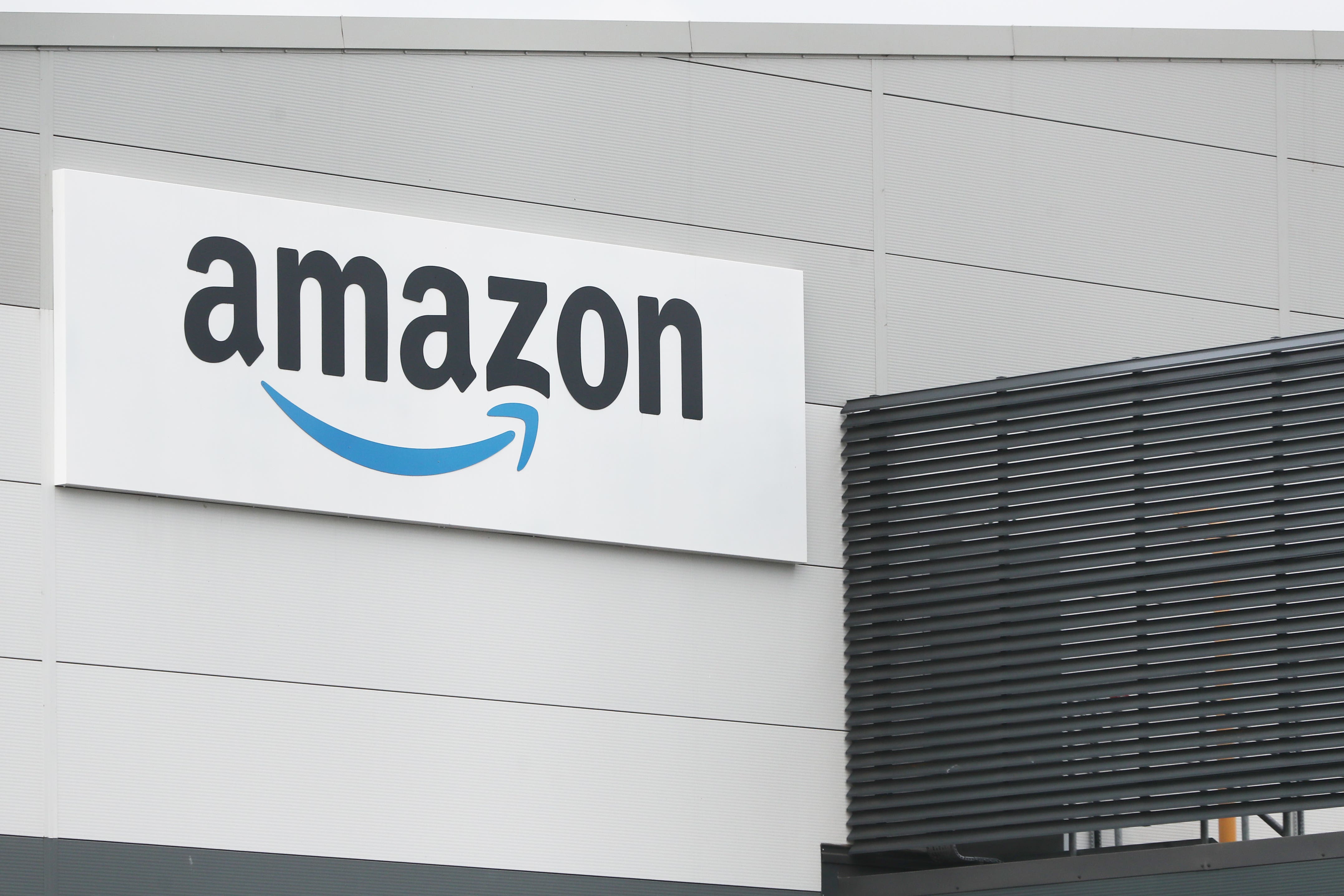Amazon must take swift action to improve treatment of suppliers, regulator says
The Groceries Code Adjudicator (GCA) said it would ‘not hesitate’ to launch a formal investigation to ensure Amazon was treating its suppliers fairly.

Your support helps us to tell the story
From reproductive rights to climate change to Big Tech, The Independent is on the ground when the story is developing. Whether it's investigating the financials of Elon Musk's pro-Trump PAC or producing our latest documentary, 'The A Word', which shines a light on the American women fighting for reproductive rights, we know how important it is to parse out the facts from the messaging.
At such a critical moment in US history, we need reporters on the ground. Your donation allows us to keep sending journalists to speak to both sides of the story.
The Independent is trusted by Americans across the entire political spectrum. And unlike many other quality news outlets, we choose not to lock Americans out of our reporting and analysis with paywalls. We believe quality journalism should be available to everyone, paid for by those who can afford it.
Your support makes all the difference.Amazon must take “swift and comprehensive action” to improve its compliance with industry rules designed to protect suppliers, the grocery regulator has said.
The Groceries Code Adjudicator (GCA) said it would “not hesitate” to launch a formal investigation if necessary to ensure Amazon was treating its suppliers fairly and lawfully.
It encouraged suppliers to submit information confidentially about any issues they were facing with Amazon.
The GCA said its 2024 annual survey found that fewer than half of respondents directly supplying Amazon believed the retail giant “consistently” or “mostly” complied with the Groceries Supply Code of Practice (GSCOP).
The code aims to ensure Britain’s 14 largest grocery retailers, including Tesco, Sainsbury’s and Marks & Spencer, treat suppliers fairly.
It restricts firms from making changes to supply contracts at short notice and also requires retailers to give an appropriate period of notice if they no longer want to use a supplier, and provide reasons for ending the contract.
Amazon’s perceived code compliance score fell from 59% last year to 47%.
The results of the eleventh annual survey, which received more than 3,000 responses, show that the number of suppliers experiencing a code issue fell from 36% to 33%.
As food price inflation has fallen, the number of suppliers which requested at least one cost price increase (CPI) from a retailer over the previous 12 months fell from 91% in 2023 to 67% in 2024.
The number of suppliers highlighting a retailer’s response to a CPI as an issue almost halved, falling from 28% in 2023 to just 16%.
Groceries Code Adjudicator Mark White said: “I am encouraged to see improvements in retailers’ treatment of suppliers across a range of issues including the management of cost price increase requests but also resolution of invoice discrepancies and data input errors.
“However, the survey shows clearly that many suppliers do not believe that Amazon is complying with the code. Amazon must ensure suppliers understand the changes it has made since its designation and in response to these survey results, and make any further changes that are needed to ensure code compliance.
“I will not hesitate to launch a formal investigation if appropriate and necessary to ensure Amazon is treating its suppliers fairly and lawfully.
We have made a series of improvements to our grocery supplier experience since last year’s results, with clearer explanations for cost price increase decisions, minimum periods for de-listing, and the launch of a major upgrade for handling invoice disputes
“I encourage suppliers to continue to confidentially tell me about the issues they are facing with Amazon.”
An Amazon spokesman said: “We are very disappointed by these results and we are committed to improving them. Amazon takes the Groceries Code extremely seriously and we have introduced robust compliance procedures for our suppliers.
“We have made a series of improvements to our grocery supplier experience since last year’s results, with clearer explanations for cost price increase decisions, minimum periods for de-listing, and the launch of a major upgrade for handling invoice disputes.
“We will be making further changes, with faster time-frames to resolve more types of financial disputes, as well as strengthened account management support for smaller suppliers.
“There is still more to do. We are committed to working with the Groceries Code Adjudicator, building long-term sustainable relationships with our suppliers, and continuing to create opportunities for suppliers of all sizes to reach millions of customers in the UK and around the world.”
For the first time, Co-op came top of the 14 retailers for overall code compliance, at 98%.
Co-op and Lidl both recorded a 2% improvement, which was the biggest percentage improvement across the 14 retailers.
Co-op Food managing director Matt Hood said: “I am absolutely delighted to see Co-op at the top of the 2024 GCA annual survey, and again one of the most improved retailers, which is a huge testament to how far we’ve come and the sheer hard work of the team, as it is a significant improvement on even last year, where we were in fifth position.
“I am extremely proud of our teams, as we continue to drive innovation, creativity and excellence in supplier engagement whilst delivering ongoing improvements in our commercial performance.
“I’m also grateful to all the suppliers who completed the survey and shared their feedback.”